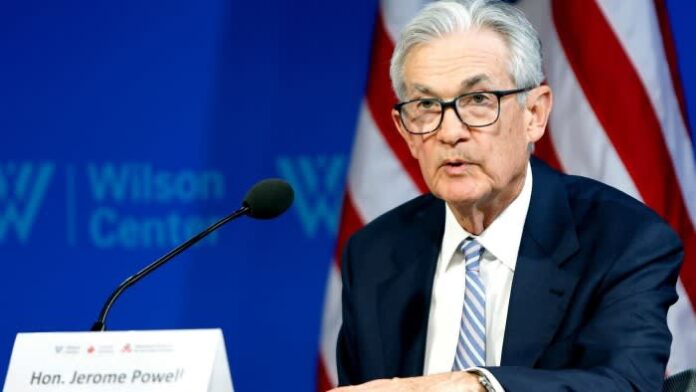Unlock the Editor’s Digest for free
Roula Khalaf, Editor of the FT, selects her favourite stories in this weekly newsletter.
All 31 of the largest US banks passed the Federal Reserve’s yearly so-called stress tests, satisfying regulators that they could withstand a theoretical scenario in which unemployment rose to 10 per cent during a severe recession.
The Fed on Wednesday said that under its baseline scenario banks including JPMorgan Chase, Goldman Sachs and Bank of America would lose nearly $685bn and suffer their biggest hit to capital in six years, but would still meet regulatory minimum standards.
The scenario involved a 40 per cent decline in commercial real estate prices, a substantial rise in office vacancies and a 36 per cent fall in house prices.
“This year’s stress test shows that large banks have sufficient capital to withstand a highly stressful scenario and meet their minimum capital ratios,” said Michael Barr, the Fed’s vice-chair for supervision.
“The goal of our test is to help to ensure that banks have enough capital to absorb losses in a highly stressful scenario,” he added.
The tests are used to calculate the minimum amount of capital, which is used to absorb losses, that banks must hold relative to their assets.
The banks, which often use the results of the test to update investors on potential shareholder payouts, will on Friday afternoon provide an update on what they expect their new capital requirement to be.
Barclays research analyst Jason Goldberg estimated that several large banks, including Goldman and BofA, are set to see their capital requirements rise by more than analysts had anticipated, potentially leaving less capital for potential dividends and buybacks.
Goldman shares were down 1.7 per cent in after-hours trading, while those of BofA had slipped 0.3 per cent.

The annual exercise started after the 2008 financial crisis and was seen as a major factor in rebuilding confidence in the banking sector. In recent years, the nation’s largest banks have generally passed the tests, usually by a wide margin, raising questions about their usefulness and purpose.
Matthew Bisanz, a partner in the financial services practice at law firm Mayer Brown, said the tests’ reliance on capital buffers “focuses people on the wrong things”.
“Last March [2023], we saw three banks obliterated in one month,” he said, referring to the failures of Silicon Valley Bank, First Republic Bank and Signature Bank. “Yet all 31 of these banks survive a stress event that lasts nine quarters. This reinforces how unrealistic the stress test is.”
The results come during a renewed focus around capital levels at large US banks, with regulators weighing changes to its proposal to implement the so-called Basel III Endgame capital rules.
The Fed’s initial proposal, which called for a significant increase in capital requirements, provoked an aggressive lobbying effort from large US banks. Fed chair Jay Powell has since said it would likely make material changes to the proposed new rules.
This year’s stress tests would push banks’ aggregate tier one capital ratio, their main cushion against losses, down by 2.8 percentage points, the biggest drop since 2018.
The Fed said the bigger losses were partly the result of an expectation of higher losses on credit card loans for the nation’s biggest banks, up nearly 20 per cent from a year ago. Banks’ corporate loan books also became riskier, as higher expenses and lower fees left lenders with less of a cushion to absorb a severe hit.
Another scenario, examining what would happen if five large hedge funds failed, showed the largest and most complex banks did have material exposure and were projected to lose between $13bn and $22bn in aggregate.
Additional reporting by Stephen Gandel in New York
Source link





